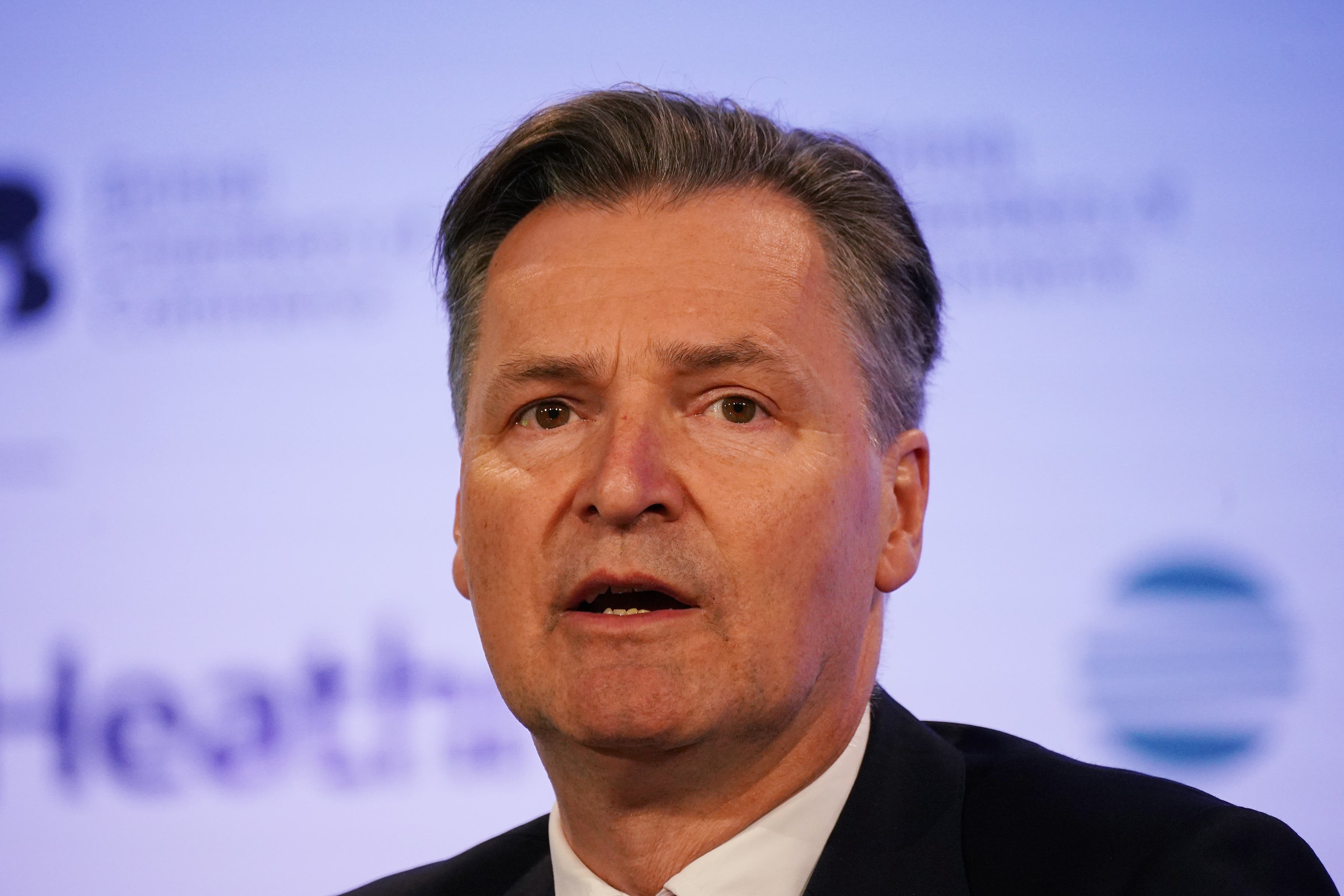Aviation regulator has ‘got it wrong’ on charges, warns Heathrow boss
Outgoing chief executive John Holland-Kaye said the Civil Aviation Authority has made an error in deciding what airports can charge airlines.

Your support helps us to tell the story
From reproductive rights to climate change to Big Tech, The Independent is on the ground when the story is developing. Whether it's investigating the financials of Elon Musk's pro-Trump PAC or producing our latest documentary, 'The A Word', which shines a light on the American women fighting for reproductive rights, we know how important it is to parse out the facts from the messaging.
At such a critical moment in US history, we need reporters on the ground. Your donation allows us to keep sending journalists to speak to both sides of the story.
The Independent is trusted by Americans across the entire political spectrum. And unlike many other quality news outlets, we choose not to lock Americans out of our reporting and analysis with paywalls. We believe quality journalism should be available to everyone, paid for by those who can afford it.
Your support makes all the difference.The aviation regulator has “clearly got it wrong” in its proposals for how much Heathrow can charge airlines, the airport’s boss has claimed.
Outgoing chief executive John Holland-Kaye said the fact the airport remains loss-making while airlines return to profit demonstrates the Civil Aviation Authority (CAA) has “got the pricing wrong”.
The CAA’s final proposals involve the cap on Heathrow’s average charge per passenger falling from £30.19 last year to £26.31 in 2026.
A decision on the cap is expected shortly.
On Thursday, Heathrow reported underlying pre-tax losses of £684 million for last year, against losses of £1.3 billion in 2021.
It shouldn't be the case that the economically-regulated business... should still be loss-making when the unregulated airlines are back to profit already
It said no dividends were paid in 2022 and none are planned for 2023 as it continues to rebuild after the industry was battered by pandemic travel restrictions.
Mr Holland-Kaye told the PA news agency: “We are still loss-making, and tomorrow I suspect we’ll have IAG (British Airways’s parent company) – one of the biggest airlines – announcing they’ve returned to profit, maybe even returning to dividends.
“It shouldn’t be the case that the economically-regulated business which should have a smooth level of financing – that’s one of the benefits of regulation – should still be loss-making when the unregulated airlines are back to profit already.
“That’s one of the things that shows the CAA has got the pricing wrong.
“The pricing that they have set in their final proposals is lower for this five-year period than it was for the last five-year period, even though there are far fewer passengers and the financing costs are much higher because interest rates have gone up.
“So the CAA has clearly got it wrong so far.
“We’re hopeful that they will correct that in a couple of weeks, but if not then we have the opportunity to appeal.”
Major airports such as Heathrow suffered massive disruption last summer as the aviation sector struggled to cope with staff shortages and travellers were met with sudden flight cancellations and severe delays.
Heathrow – which is owned by Spanish group Ferrovial and investors including the Qatar Investment Authority – said passenger numbers trebled to 61.6 million, up by 42.2 million on a Covid-impacted 2021, which it claimed was the biggest increase of any major global airport.
Mr Holland-Kaye said “2022 may have been a year of recovery, but 2023 is shaping up to be a year of renewal for Heathrow”.
He added: “Our teams have already delivered a successful Christmas and half-term getaway, and with a great investment plan in place, we are determined to once again rank in the top 10 airports for service.”
Mr Holland-Kaye announced plans earlier this month to step down later this year after nine years in the role.
He will remain in post until a successor is appointed.
The group blamed inflation and lower passenger numbers for holding back progress on its bottom line, while it also hit out at “insufficient regulated charges”.
Pandemic travel curbs were only lifted widely in March last year after two years of closures, while Heathrow was also forced to impose a cap on passenger numbers due to last summer’s staff shortages.
The cap was removed at the end of October and Heathrow said it boosted its workforce to nearly 75,000 by the end of 2022 to “get capacity, service levels and resilience back to the high levels that they were before the pandemic”.
But the group is also now grappling with industrial action after UK airports were hit by severe disruption in the run-up to Christmas, with Border Force staff staging strike action in December.
And new strikes loom for the busy Easter holiday season after the Unite union said its airport worker members would vote on whether to stage industrial action in a dispute over pay, with the outcome of the ballot due on March 17.